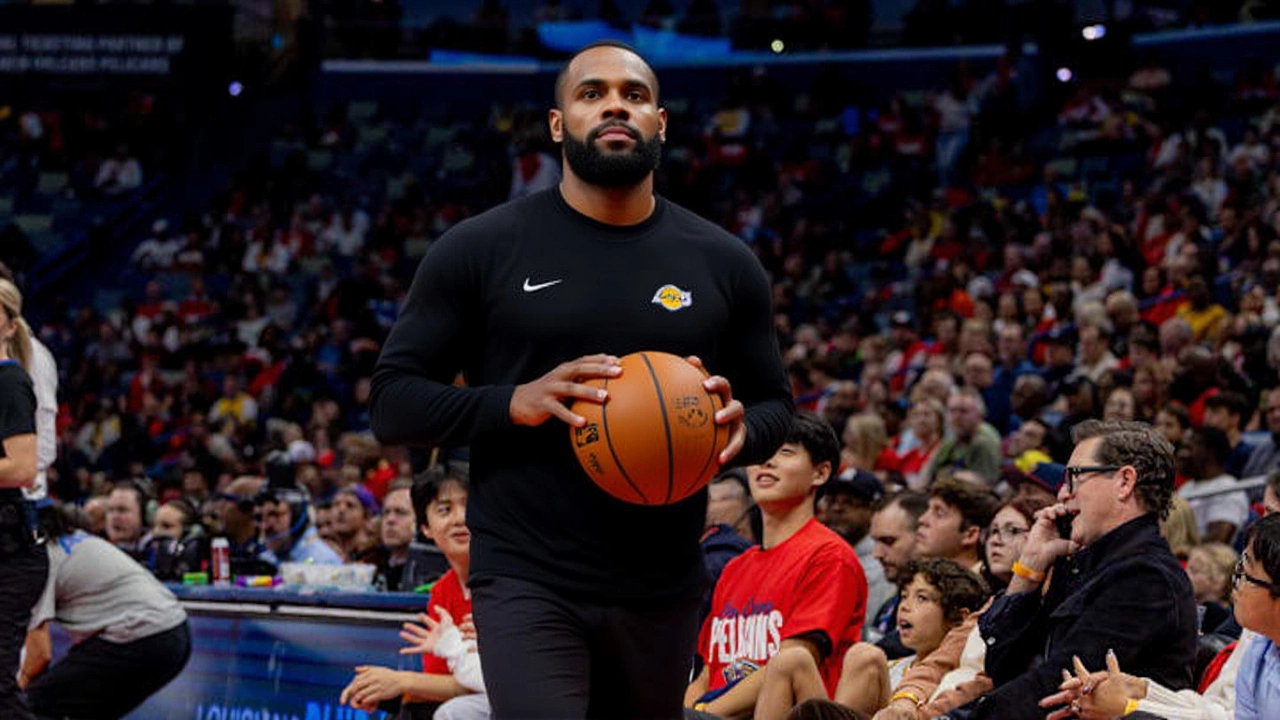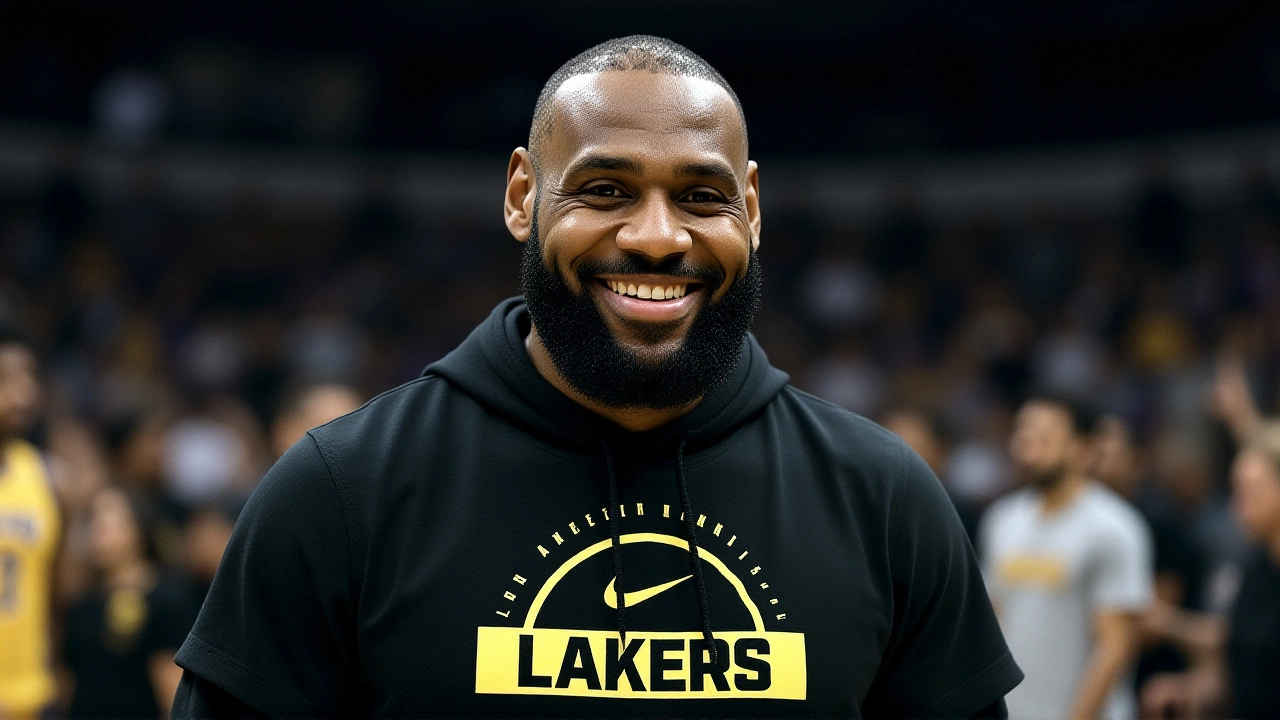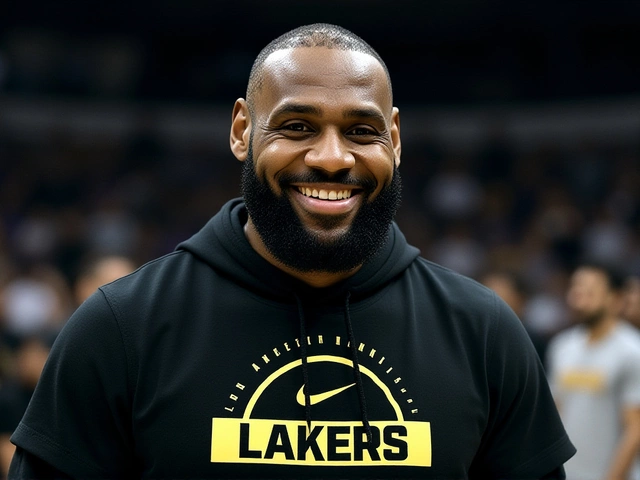LeBron James didn’t just step onto the court Wednesday night—he rewrote history. At 40 years old, the NBA’s most enduring superstar delivered a vintage performance in his LeBron James’s record-setting 23rd season debut, leading the Los Angeles Lakers to a stunning 140-126 victory over the Utah Jazz at Crypto.com Arena in Los Angeles on November 18, 2025. With 11 points and 12 assists, James didn’t need to score heavily to dominate. He orchestrated the offense like a conductor, turning the game into a masterclass in timing, vision, and sheer basketball IQ. The win improved the Lakers’ record to 11-4, while the Jazz fell to 5-9 in a season that’s already slipping away.
History in Real Time
No one has played 23 NBA seasons. Not Michael Jordan. Not Kareem Abdul-Jabbar. Not Kobe Bryant. And now, with a simple pass to a cutting Austin Reaves for a three-pointer in the third quarter, LeBron James made it official. The NBA’s official YouTube channel dropped two highlight reels the next day—one titled "LeBron Drops DOUBLE-DOUBLE In Season Debut," the other a full-game recap. ESPN’s version, titled "Highlights from LeBron James’ record-setting 23rd season debut," didn’t just show stats. It showed awe. "LeBron knew the clock just so nonchalantly bounce pass between two defenders," one analyst said. "His vision? Extraordinary tonight." The crowd at Crypto.com Arena, packed with fans young and old, erupted each time he touched the ball. A 17-year-old in the upper bowl held up a sign: "23 Seasons. Still the GOAT." No one laughed. Not even the Jazz players.
Luka Steals the Spotlight—But LeBron Runs the Show
It was Luka Dončić who dropped 37 points, 10 assists, and 5 rebounds, looking every bit the All-NBA force he is. Austin Reaves added 26 points and five rebounds. For a moment, it looked like the Lakers’ future had arrived. But the game’s heartbeat? It belonged to James. His 12 assists weren’t just numbers—they were decisions made in milliseconds. He saw cuts before they happened. He found open shooters in traffic. He didn’t just pass—he created opportunity with a glance.
Keyonte George, the Jazz’s 22-year-old point guard, had his own breakout night: 34 points, 8 assists, and five three-pointers. But even he admitted afterward, "He’s not just playing. He’s teaching. Every time he touches the ball, I learn something."

The Comeback That Defined the Night
The Lakers trailed by 11 points early in the second quarter. The Jazz were hitting threes, moving the ball with precision, and feeding off their home crowd energy—except this wasn’t Salt Lake City. This was Los Angeles, and LeBron had been here before. In 2009. In 2010. In 2020. When the Lakers needed a spark, he didn’t take over—he elevated everyone around him.
A 12-2 run to close the half turned the tide. A baseline cut by Jalen Hood-Schifino, a no-look dime from James, and a three from Reaves. Then, with 3:12 left in the third, James stole the ball at midcourt, sprinted the length of the floor, and dished to Dončić for a transition dunk. The arena hit 110 decibels. The Jazz called timeout. They never recovered.
Why This Matters Beyond the Box Score
This wasn’t just another win. It was a cultural moment. LeBron James is the only player in NBA history to have played in four different decades—2000s, 2010s, 2020s, and now 2030s. He’s played alongside Shaq, Kobe, Wade, Durant, and now Luka. He’s been the face of the league since he was 18. And now, at 40, he’s still the most dangerous passer on the planet.
Teams are rethinking how they train, how they recover, how they build rosters around aging stars. The Lakers didn’t just win—they validated a new model: elite playmaking doesn’t fade with age. It evolves. James doesn’t run as fast as he did in 2008. But he reads the game like a chess grandmaster. And in a league obsessed with youth, his longevity is a rebellion.

What’s Next? The Marathon Continues
The Lakers have 67 games left this season. James has played in 1,673 regular-season games. He’s 38 games away from passing Kareem for the most games played in NBA history. But he’s not chasing records anymore. He’s chasing moments. The look on his son Bronny’s face when he checked in for the first time this season. The way the rookie guards now mimic his footwork in practice. The way his name still echoes through arenas from Tokyo to Toronto.
His contract runs through next season. There’s no talk of retirement. Not yet. And honestly? Nobody expects it. Not after this. Not after 23 seasons. Not after 140 points, 12 assists, and a legacy that keeps growing.
Frequently Asked Questions
How does LeBron James’ 23rd season compare to other NBA legends’ careers?
No player in NBA history has played 23 seasons. Kareem Abdul-Jabbar played 20, and both Kobe Bryant and Robert Parish played 21. LeBron’s longevity is unprecedented not just in games played, but in sustained elite performance. He’s averaged at least 25 points per game in 19 of his 23 seasons—a record. Even in his 22nd season, he averaged 28.9 points, 8.3 rebounds, and 8.1 assists—numbers that would be All-NBA worthy for any player under 30.
Who are the key players helping LeBron carry the Lakers this season?
Luka Dončić is the offensive engine, averaging 31.2 points and 9.7 assists through 15 games. Austin Reaves has emerged as a reliable scorer and defender, while rookie Jalen Hood-Schifino is providing energy off the bench. Veteran D’Angelo Russell, though traded mid-last season, left behind a culture of high IQ play that complements LeBron’s vision. The Lakers’ depth is better than in years past, but without LeBron’s leadership, they’d still be a middle-tier team.
What’s the significance of the Lakers playing at Crypto.com Arena?
Crypto.com Arena has been the Lakers’ home since 1999, replacing the Great Western Forum. It’s hosted 11 NBA championships for the franchise, including LeBron’s 2020 title. The arena’s history adds weight to his milestones—this is where he joined Kobe in 2018, where he passed Magic Johnson in career assists in 2022, and now, where he became the first player to play 23 seasons. The building itself is a monument to Lakers greatness, and LeBron is its most enduring chapter.
Why is LeBron’s playmaking so remarkable at age 40?
Most NBA players lose lateral quickness and reaction time by their mid-30s. But LeBron’s court vision has improved with age. He reads defenses like a veteran quarterback, anticipating passes before the play develops. His 12 assists against the Jazz came on 28 field goal attempts—meaning he created nearly half the team’s scoring. No player over 35 has ever averaged more than 8.5 assists per game in a season. LeBron is on pace for 9.1. That’s not aging. That’s evolution.
What’s the impact of LeBron’s record on younger players and the NBA’s future?
Young stars like Victor Wembanyama and Paolo Banchero now cite LeBron as their blueprint—not just for scoring, but for longevity. Teams are investing more in recovery tech, nutrition, and load management because of him. The NBA has even begun tracking "career longevity metrics" in draft profiles. His 23rd season isn’t just a personal achievement—it’s reshaping how the league values player development, health, and sustainability. He didn’t just play longer. He changed the game’s expectations.
Did LeBron set any other records during this game?
Yes. With his 12 assists, LeBron passed Jason Kidd for the most career assists by a player over 40. He also became the first player in NBA history to record a double-double in his 23rd season debut. Additionally, he’s now the only player with 10,000+ points, 10,000+ rebounds, and 10,000+ assists. He’s also the only player to have played in 23 seasons and still be among the top 10 in assists per game. The numbers keep coming.

